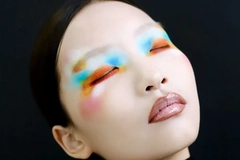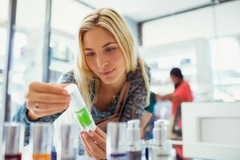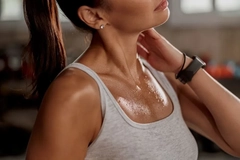P&G acquires Mielle Organics to expand textured hair care options following viral TikTok

16 Jan 2023 --- Procter & Gamble (P&G) Beauty has expanded its portfolio of brands adding Mielle Organics, with intentions of making hair products and services for consumers with textured hair more accessible. The brand recently went viral on TikTok after one of its hair oils was promoted by various influencers, leading to it selling out at US retail outlets.
Mielle Organics’ popularity is eliciting disappointment from Black consumers, who are left concerned about a shrinking variety of hair care options as a result of Black-owned brands joining larger companies with a wide consumer base.
Nonetheless, Mielle will continue to be led by co-founders Monique and Melvin Rodriguez as CEO and COO, respectively, and will operate as an independent subsidiary of P&G Beauty.

“This partnership gives Mielle an opportunity to serve more textured hair consumers with the products and formulas that our community loves,” assures Monique.
“From the moment we stepped into P&G, we saw a diverse team of leaders who share our values and vision for innovation, education and community empowerment, including several Black leaders who play a key role in the hair care and beauty businesses.”
P&G and Mielle Organics have also each committed US$10 million to Mielle Cares, a non-profit that provides resources and support to advance education and economic opportunities in Black and Brown communities.
 The partnership will accelerate the hair care brand’s access to more consumers with textured hair.“P&G Beauty’s role will be to support the Mielle Organics team with what they need to achieve their vision – including increased access in Black and Brown communities and investing in research and innovation – while enabling the core tenets of their success to continue as they are today,” says Lela Coffey, VP of multicultural hair care business at P&G.
The partnership will accelerate the hair care brand’s access to more consumers with textured hair.“P&G Beauty’s role will be to support the Mielle Organics team with what they need to achieve their vision – including increased access in Black and Brown communities and investing in research and innovation – while enabling the core tenets of their success to continue as they are today,” says Lela Coffey, VP of multicultural hair care business at P&G.
Viral sensation causes disappointment
Mielle was recently at the center of media attention for another reason. Its Rosemary Mint Scalp & Strengthening Oil – designed primarily for textured hair growth – went viral on TikTok, causing it to sell out at various retail locations in the US.
Last month, TikTok influencer Alix Earle, reviewed the product for more than three million followers, highlighting her “tremendous hair growth” after using the product for slightly over a month. The promotion was followed by reviews from other White content creators like Danielle Athena and Kelly Anne Stone.
Najeera Williams, the owner of the natural hair care brand Chairish Naturals and Mielle Organics consumer, explained the collective worries that arise among the Black community when a product targeting textured hair becomes trendy among the white community.
She expressed that Black consumers are rightfully concerned about this product becoming popular among White consumers after “a similar situation with another brand known as Shea Moisture.”
Unilever acquired the Black-owned hair care brand Shea Moisture in 2017. Shortly after, the brand released a contested advertisement featuring three women – two with straight hair and only one with curly hair – which drew criticism on social media for its “whitewashing” of a brand originally designed for Black consumers.
Another TikTok influencer Ronelle Tshiela remarked in a video: “By now, you know that there are not a lot of products on the market for us. If you go in the store, you have to march to the ethnic hair section, and you notice that this section is significantly smaller than all of the other sections.”
It remains to be seen whether the latest acquisition of Mielle Organics by a large-scale industry manufacturer like P&G will change its formula in the future, as it adapts to a broader target demographic. As we know, products designed for textured hair work differently when applied to other types. However, Mielle Organics has issued a statement claiming it has no plans to change its formula at present. Mielle Organics will operate as an independent subsidiary of P&G Beauty.
Mielle Organics will operate as an independent subsidiary of P&G Beauty.
Supporting diversity
P&G maintains that its investment in Mielle Cares further expands its work in advancing gender and racial equity through platforms like My Black is Beautiful and Widen the Screen.
“Mielle remains committed to leading with purpose and impact and serving as a beacon in historically underserved communities. Expanding our impact in Black and Brown communities will become an even greater focus in the years ahead,” says Melvin.
Over the last three years, Mielle Organics was able to secure funding from the New Voices Fund for Women of Color and a nine-figure investment from Berkshire Partners. Founded in 2014, it is a Black-founded, woman-led global beauty brand rooted in natural ingredients, with a heavy emphasis on incorporating healthier elements as its “root to results.”
“Monique, Melvin and their entire team have done an incredible job building Mielle Organics into a leading hair care brand beloved by millions of Black women, and we’re excited to help them continue their success,” says Coffey.
Advocating for inclusion
In October last year, Campaign for Safe Cosmetics published a list of top Black-owned beauty brands featuring entrepreneurs making safer beauty products for Black women, free of the toxic ingredients linked to breast cancer and health concerns that disproportionately impact Black women.
“Textured hair comes with its unique challenges. Choosing products that feel confident and safe can be difficult,” said Dr. Astrid Williams, environmental justice manager for Black Women for Wellness.
“The companies highlighted by this important project were vetted to ensure they are not using carcinogens and other harmful ingredients, making it easier for individuals to choose products and search for healthier options that are held to a higher standard of ingredient safety.”
Additionally, the Dove Self-Esteem Project commissioned a report titled “The Real Cost of Beauty Ideals,” which revealed that natural hair discrimination affected 5 million people, with Black women being 3.4 times more likely to be perceived as “unprofessional” due to their hair when compared to non-Black women.
By Radhika Sikaria, with additional reporting from Benjamin Ferrer













